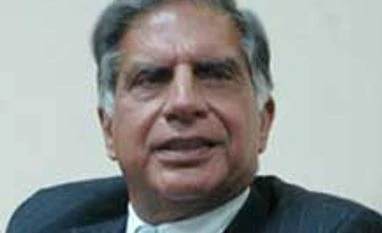In his address after receiving MMA Amalgamations Business Leadership Award in Chennai recently, he said the Indian industry seems to thrive unlike the spectrum of business people elsewhere in the world to envy or to frown on success. The net result is that we tend to pull each other down needlessly whereas in other countries you see business is pulling together, he said.
He also urged government and industry to collaborate in a more proactive manner.
Also Read
He questioned on how many research activities one sees amongst business leaders in India as against the world. "So, in a manner of speaking, industry in India has to be more compatible with each other and more trusting and more collaborative than they have been. In that way I believe Indian business could be proud of what they have achieved. That achievement may be better recognised than it is today and would move further down the path."
"There should be no shame on leadership, there should be no shame on great success, the pride and happiness that this takes place in India. When you go beyond the shores of India there is no reason to feel incapable of leading an enterprise outside India provided you do the right thing and operate in the right value system.
"I think we have all the ingredients to do this, it's with our attitude of not giving due recognition to success," said Tata.
He said the government and corporations have a combined task for moving the country ahead. Moving the country ahead means creating a nation that moves towards equality by offering equal opportunity for all individuals.
Therefore, government has the role of improving the infrastructure, creating environment for its people that gives them security, safety, an opportunity for growth-based on meritocracy.
On the other hand, corporates have the role with their name and place. They have to be entrepreneurial, generate the spirit that drives the country.
Whenever this has cease to happen, nations have tumbled economically, or moved to a direction of being dictators or banana republics or creating crony capitalism.
Speaking about China, he said, China and India have about the same size of population. "If a Chinese industry can scale itself up to a particular size, what stands in the way of an Indian company from doing exactly the same thing, he questioned.
You’ve hit your limit of {{free_limit}} free articles this month.
Subscribe now for unlimited access.
Already subscribed? Log in
Subscribe to read the full story →

Smart Quarterly
₹900
3 Months
₹300/Month
Smart Essential
₹2,700
1 Year
₹225/Month
Super Saver
₹3,900
2 Years
₹162/Month
Renews automatically, cancel anytime
Here’s what’s included in our digital subscription plans
Access to Exclusive Premium Stories Online
Over 30 behind the paywall stories daily, handpicked by our editors for subscribers


Complimentary Access to The New York Times
News, Games, Cooking, Audio, Wirecutter & The Athletic
Business Standard Epaper
Digital replica of our daily newspaper — with options to read, save, and share


Curated Newsletters
Insights on markets, finance, politics, tech, and more delivered to your inbox
Market Analysis & Investment Insights
In-depth market analysis & insights with access to The Smart Investor


Archives
Repository of articles and publications dating back to 1997
Ad-free Reading
Uninterrupted reading experience with no advertisements


Seamless Access Across All Devices
Access Business Standard across devices — mobile, tablet, or PC, via web or app



)
